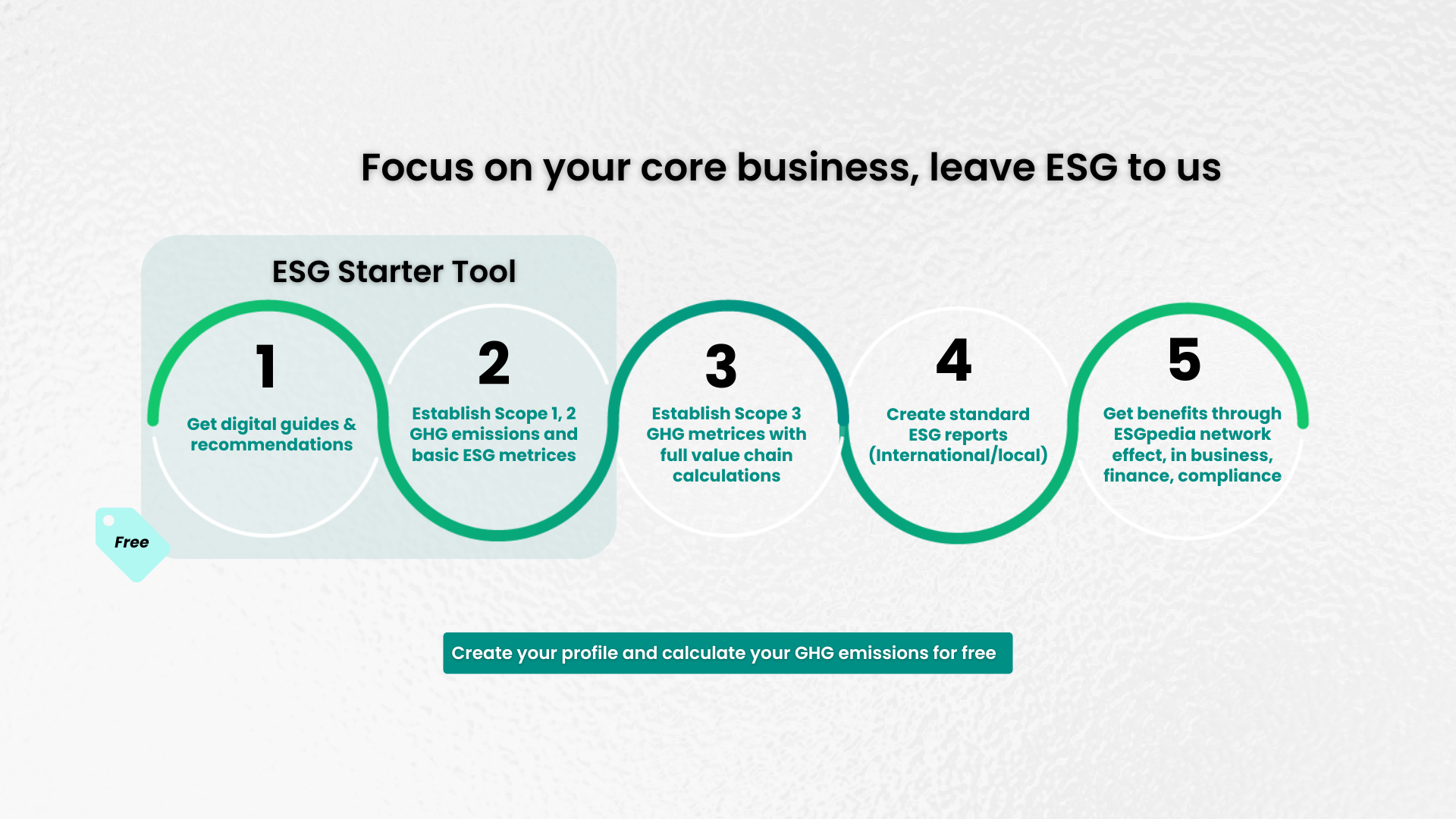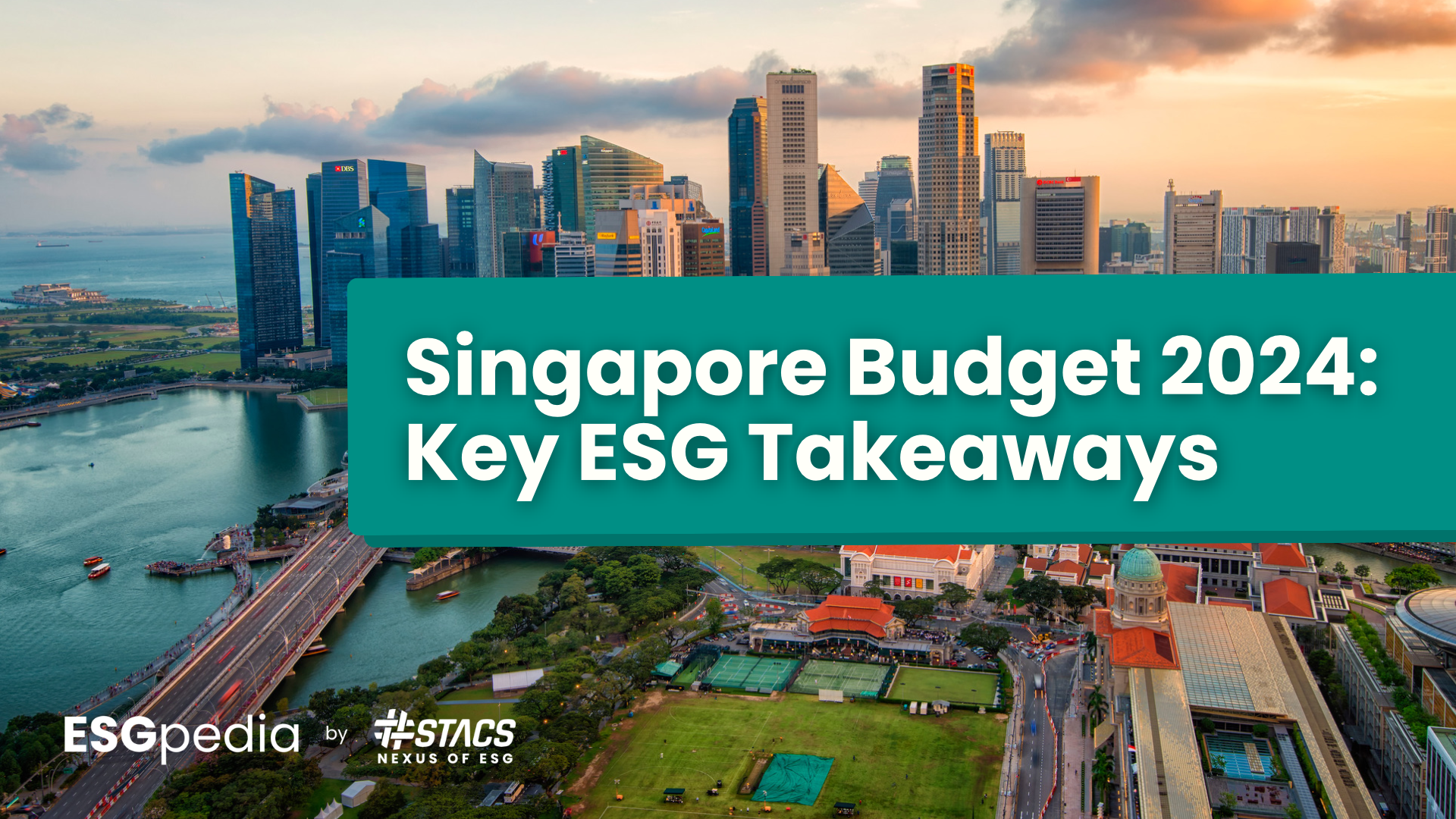Published 3 April 2024 –
Singapore’s Budget 2024 was announced in February, signalling a shift that businesses need to kickstart sustainability reporting in order to keep up with ESG regulations as climate change becomes increasingly prevalent – listed companies are required to create sustainability reports aligned with the International Sustainability Standards Board by 2025.The Budget 2024 focuses on several key areas to address the pressing issue of climate change, aiming for a net-zero carbon economy and enhancing the nation’s resilience and sustainable development.
With a potential 5°C rise in temperature by the end of the century, Singapore’s Budget 2024 emphasised the need for urgent action to reduce greenhouse gas emissions and mitigate global warming impacts.
Acknowledging the significant role of natural gas in Singapore’s energy mix, the Budget commits to exploring new clean energy pathways including geothermal, hydrogen, and nuclear energy in line with COP28 outcomes to triple renewable energy supply by 2030.
In particular, the challenges faced by SMEs in transitioning to green practices were acknowledged in the Budget, a segment of the economy that STACS ESGpedia is highly engaged in supporting.
To this end, the government is enhancing the Energy Efficiency Grant and supporting more partnerships with multinational enterprises for scaling and meeting global sustainability standards.
Singapore’s strategic positioning as a carbon markets hub is being strengthened with an increase in the carbon tax rate, aiming to stimulate climate initiatives locally and regionally.
The Budget also focused on building sustainable workforce capabilities through enhanced talent development programmes, particularly for mid-career workers and ITE graduates, to address skills shortages in the green economy.
Starting 1 April 2024, as part of the Enterprise Financing Scheme – Green (EFS-Green), support will be expanded to include businesses which adopt green solutions, to help them embark on their sustainability journey and reduce their carbon footprint.
Sustainability Reporting Grants to support large companies and SMEs
As a notable step forward in empowering companies in Singapore towards corporate sustainability, the Sustainability Reporting Grant in the Singapore Budget 2024 aims to help large companies prepare their first sustainability report to meet mandatory climate-related disclosures by defraying up to 30% of qualifying costs.
With SMEs forming the supply chains of large companies, they are inevitably facing increasing urgency to disclose their ESG data as part of trickle-down effects. The SME Sustainability Reporting Support Programme will help SMEs preparing their first sustainability reports, by defraying up to 70% of costs.
To grow skills in sustainability reporting, Enterprise Singapore will partner sustainability service providers to offer internships and attachments for students and mid-career working professionals. More details are expected to be announced later in 2024.
Tiered support approach in Budget 2024 to facilitate sectors’ green transformation
Specifically, the push for financial support for training and digital adoption, ESG reporting and sustainability expertise, driving towards a net zero future, and environmental levies or taxes, are significant measures by the government to enable the nation towards sustainability.
The Singapore government’s tiered support approach for businesses on their digitalisation roadmap, particularly focusing on digital technologies such as AI, is something that other Asia Pacific countries should emulate in order to advance ESG initiatives across the region.
The top-down tiered support approach will help facilitate business transformation, allowing for more efficient and sustainable operations. In the big picture, it will help facilitate the greening of Asia supply chains, which is especially key amidst the rise in sustainable procurement, greatly fuelled by increasing regulations and push from the European Union (EU).
There is a clear push towards building ESG reporting and sustainability expertise through comprehensive talent development roadmaps, with the government supporting strategic upskilling and reskilling initiatives, potentially supported by enhanced tax deductions for training programmes and subsidies for employers offering clear training pathways.
Moreover, the Singapore Budget 2024 encourages enterprises to accelerate their green transitions, proposing partnerships with sectoral agencies and Trade Associations and Chambers (TACs) to chart decarbonisation industry roadmaps.
Initiatives like the Energy Efficient Grant support transition sectors that are typically difficult to be green overnight. Such grants are helpful in driving the adoption of technologies that will bring these sectors along the decarbonisation journey.
Expanding financing options and increasing lending to smaller enterprises for sustainability projects are also part of the recommendations, and this is also one of the areas where we at STACS can support SMEs in building their ESG profiles in order to more easily access sustainability-linked financing.
Finally, to promote green accountability, the Budget explores environmental levies or taxes on products or services with significant ecological footprints, incentivising climate-conscious choices and encouraging environmental responsibility.
This is significant as part of a broader carrot-and-stick approach by regulators around the world, where those businesses investing in transforming their operations and supply chains are rewarded, while those refusing to do so are penalised.
This is why STACS has always been a firm advocate that sustainable businesses will be profitable — and to be profitable you will have to be sustainable. The Budget 2024 adds further weight to this case.
Take your post-Budget ESG step with the free ESGpedia Starter Tool to kickstart Sustainability Reporting

Aligned with the Budget 2024 in lowering the barriers to sustainability for businesses and SMEs, the ESGpedia Starter Tool is free to use today – no experience required. It allows companies to create their ESG profile by disclosing ESG metrics scalable to international ESG reporting standards, as well as calculate their Scope 1 and Scope 2 GHG emissions. Companies can then amplify their ESG commitment regionally and globally to set themselves up for greater business opportunities.
Other than the grants covered by the Budget 2024, there are already various government grants available and one such example is the IMDA Advanced Digital Solutions (ADS) Scheme that provides up to 70% support for SMEs and businesses in Singapore to adopt digital tools to kickstart their journey towards sustainability. Connect with us to learn how you can get up to 70% support for ESGpedia Premium under the IMDA ADS Scheme (available 19 Feb 2024 – 18 Feb 2025).
As a one-stop sustainability solution for businesses, we are aligned with the government’s Budget in the ambition of empowering Asia towards its Net Zero goals, and specifically, digitally enabling corporates, SMEs, and the financial sector to attain their ESG goals, ensure compliance towards increasing ESG regulations, and facilitate the efficient flow of ESG capital.
Get started today. Utilise the free ESGpedia Starter Tool to kickstart your Sustainability Reporting journey and calculate your carbon emissions.
You can read STACS ESGpedia Founder & Managing Director, Benjamin Soh’s, post-Budget comments to The Edge Singapore here: Sustainability leaders welcome $5 bil Future Energy Fund, hope for hydrogen breakthrough




